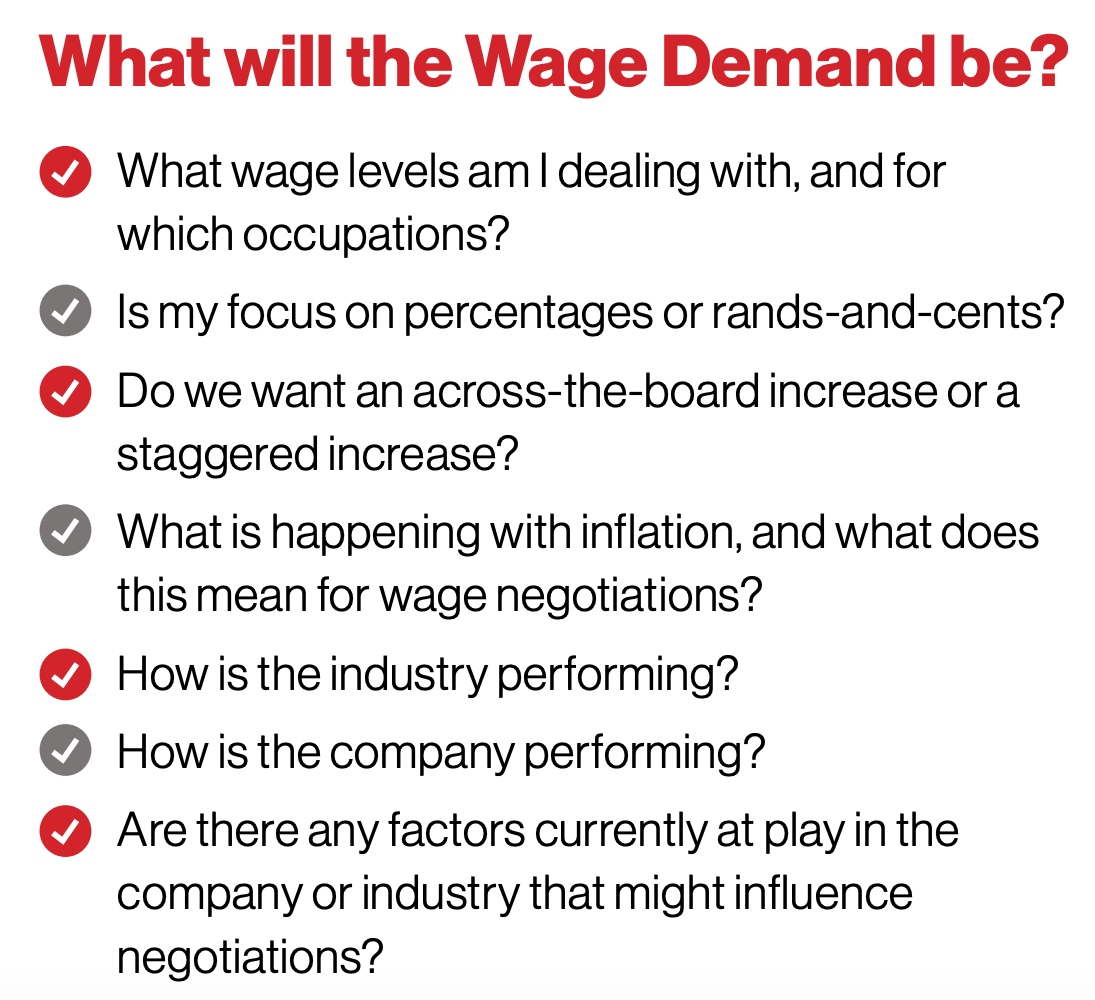Wage bargaining demands a thorough preparation. Trade union negotiators must understand the factors that affect wages in the company, industry, and broader economic context to succeed at the bargaining table. This kind of information needed by negotiators is not always freely available. But you can search for the information from several sources, from workers within the company and workers in other companies to the Internet. Here are some examples of sources:
Company information
Wage trends: analyse wage settlements and collective agreements for insights.
- The Actual Wage Rates Database (AWARD) is a repository of collective agreements that tracks minimum wages, providing unions with empirical evidence to form demands.
- The agreements database (AGREED) has many collective agreements to analyse pay and conditions in preparation for the next round of negotiations.
Financial performance: Company financials, executive pay, and industry benchmarks that could influence the company’s ability to pay higher wages.
- Company information at the CIPC register of companies.
- The LRS South African Multinational Company (MNC) database contains financial information and executive pay for JSE-listed companies.
- Online annual reports of companies listed on the stock exchange. Or request from the company.
Company policies: Pay attention to policies regarding wage increases, bonuses based on performance, benefits, and existing agreements and contracts. Reach out to the human resources department for clarification and documentation.
Industry-specific information
Industry wage trends: wage trends across industries and unions to aid negotiators in preparing for bargaining.
Sector and company performance: Sector-specific information to shape the union’s bargaining demands, given the company financials and executive pay.
Market conditions: Broader conditions affecting the industry, such as supply and demand for labour, unemployment rates, and any regulatory changes impacting wages.
- The Quarterly Labour Force Survey QLFS and labour market statistics in different industries at www.statssa.gov.za
- Media commentary on particular companies.
The economy
Inflation trends, economic growth, and gross domestic product (GDP) to contextualise wage demand effectively:
- Inflation data on www.statssa.gov.za
- The LRS Inflation Monitor – a simplified version of the Statistics South Africa data.
- LRS Bargaining Benchmarks
- TIPS’ Real Economy Bulletin
Expectations of workers
Talk to workers and union representatives about their concerns, expectations, and demands. Use their feedback to align your negotiation strategy with the interests of workers.
Legal considerations
Labour laws and requirements for collective bargaining processes: What exists within the labour legislation are minimum rights. We always need to understand key legislation that can support our bargaining.
Building my wage demand

Wage negotiations in 2024
Basic bargaining benchmarks:
- Inflation (cost of living; inflation by spending and province; producer price index)
- Unemployment rate
- GDP and economic growth
- Household food basket
- Wage indicators
The benchmark for inflation is 6% unless there is compelling evidence of a sustained downward trend in the current inflation rate of 5.3%. Wage outcomes look predictable.







